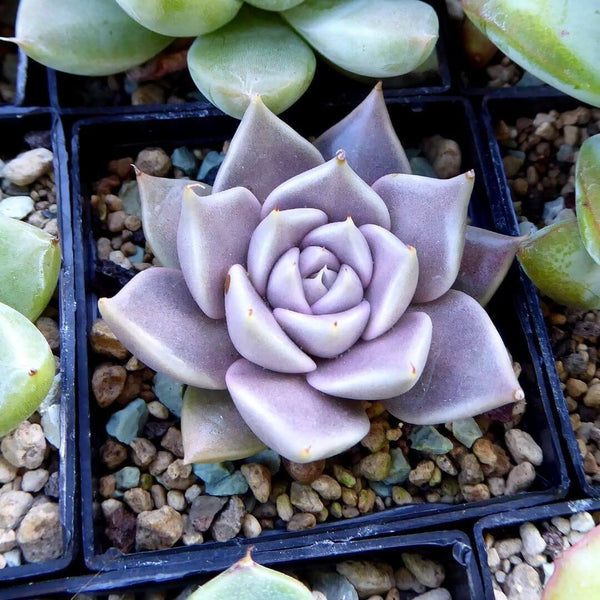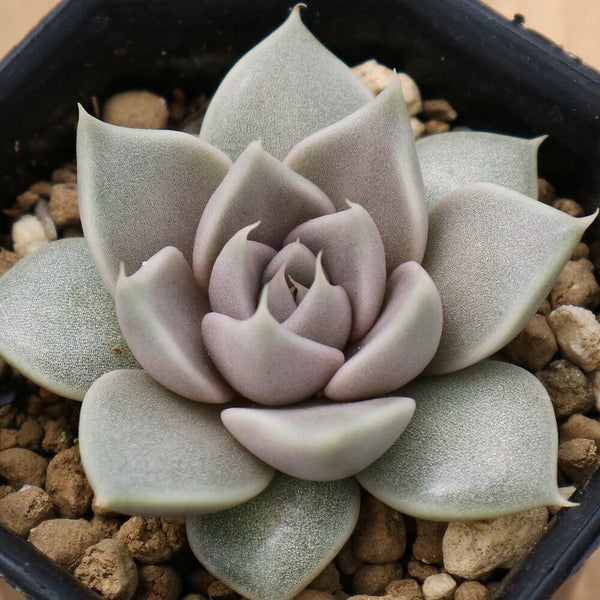Echeveria tobarensis - 20 seeds
Many known botanists and Crassulaceae enthusiasts have tried their luck looking for Echeveria tobarensis. Myron Kimnach, for example, visited Tovar twice, both times unsuccessfully. Jeronimo Reyes, with Christian Brachet, has searched for this mysterious species without success as well. Since 1960 there have been numerous attempts to rediscover this elusive species found in 1908 by Palmer in a box canyon near Tobar, today's Tovar, in the Mexican state of Durango.
HOW TO GROW?
1. Sterilize substrate (3+ minutes in a microwave or 50 mins in an oven)
2. Planters should be about 1.5 inches deep. Fill a container with good draining soil. Good drainage is essential; 50% regular potting soil with 50% coarse sand, perlite, or pebbles (~0.15 inch)
3. Echeverias have tiny seeds that should not be covered with soil. They germinate best at 18-20 °C temperatures.
4. Equally Water the substrate with water - place a piece of a napkin on top of the substrate and slowly pour the water over it.
5. Let the container soak up water for 5 minutes. Leave the container to drain out the water surplus.
6. Spread the seeds over the substrate, leave some space between them.
7. Put the whole container into a zip bag to keep humidity
8. Avoid exposing to direct sunlight, but provide them with light - place them in some bright place.
9. The germination process usually starts within four days – two weeks
10. Start opening the container gradually so that the seedlings can get used to the new air conditions. Seedlings need some moisture, the substrate shouldn’t be dry, but don’t overwater. and they need an ample amount of light – but not direct sunlight
11. Repot them when you notice that seedlings are space-limited
12. Examine pots daily for fungus infection. Treat with fungicide if the infection appears
Water moderately from March to September and allow the plant to dry between waterings. Avoid getting the leaves wet as they do not welcome overhead waterings! Overwinter, keep in a cool and ventilated environment and keep plants dry, Hardy to -3°C. Needs a full sun position but tolerates light shade (shriveling up and falling of leaves along with gaps in the leaf spaces may indicate low light levels; this means that it is necessary to increase the amount of light gradually over a few days to a week).




